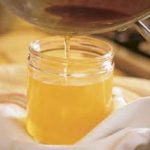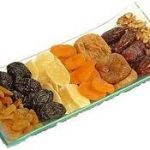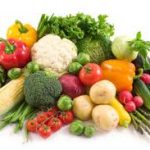For added benefits, we also conduct Garbhasanskar workshops at our clinic which includes – ANC checkup, Meditation, Music therapy, Monthwise Diet and Exercise consultation. Post delivery Mother and Child care along with Diet counselling.
Dietary regimen in pregnancy is one of the most essential aspect which should be taken care of; as the growth of the foetus solely depends upon the health and nutrition of the mother. According to Ayurveda the Ahara- rasa i.e. nutrition or energy obtained from the mother’s diet serves three important functions, firstly nourishment of the mother herself, nourishment and growth of the baby, and lastly preparation for formation of stanya, i.e. breast milk.
There is an increased need of balanced diet with good nutritional value during pregnancy, any negligence or deprivation in nourishment may affect physical and mental growth of the foetus or either lead to miscarriage, premature delivery or an under weight baby. Here this article will benefit you in planning your diet accurately during pregnancy.
Some basic dietary rules should be followed such as having timely meals is essential, it helps in proper digestion and keeps mother healthy. Mother should have freshly prepared food, which is easily digestible and healthy. It should be a balanced diet providing necessary nutrition for mother and baby. Dietary supplements like fresh fruits, vegetables, milk and ghee should be consumed regularly in desirable amount.
Ayurveda recommends to include few things in diet corresponding to month of pregnancy which adds to the healthier development of the foetus.
- First month – A pregnant woman should have atleast 2 glasses of milk everyday throughout the pregnancy, but particularly in first month milk should be consumed necessarily. If complaints like nausea, vomiting is present milk can be flavored with Elaichi, Shatavari kalpa, or milk masala containing almonds, cardamom, dry ginger, etc.
- Second month – It is suggested to take milk medicated with sweet herbs like shatavari, bala, etc. Adding 2 tsps of Shatavari kalpa to glass of milk will serve the purpose.
- Third month – The third month regimen explains adding honey and ghee to milk. One should keep in mind that honey should never be subjected to heat hence milk should be of room temp or luke warm. Another fact is honey and ghee together should always be taken in unequal quantity. You can mix 2tsps of ghee + 1tsp of honey to a cup of luke warm milk.
- Fourth month – The fourth month regimen recommends intake of fresh unsalted butter with crystal sugar.
- Fifth month – Fifth month regimen suggests increased intake of ghee alone or along with food. Minimum of 7-8 tsps of ghee should be consumed. Where ever ghee is mentioned it means preferably cow’s ghee.
- Sixth month – Ghee medicated with sweet herbs like Liquorice, Shatavari, should be taken early morning at empty stomach.
- Seventh month – Sixth month regimen should be continued in seventh month.
- Eighth month – Sweet gruel prepared in milk proves beneficial if eaten in this month. You can have gruel made of rice, sooji, wheat vermicell, etc. Gruel should be taken once a day.
- Ninth month – Anuvasan Basti with medicated oil should be administered in the last month. It enables the foetus to acquire its normal position and helps in attaining favourable conditions for normal labor.
Now lets know about the general dietary food habits which needs to be incorporated throughout the pregnancy :
a) Milk – Pasteurized milk should be taken at least twice a day with Shatavari kalpa, this not only provides energy and calcium but also is a good source of vitamin A & B, promotes foetal growth and helps to generate ample amount of breast milk post labor.
b) Buttermilk – A small bowl of freshly prepared home made buttermilk can be taken after lunch, it increases appetite, improves digestion and reduces complains of gases and swelling and prevents constipation.
c) Butter – 1-2 spoons of butter alone or with crystal sugar provides strength, increases appetite, adds glow to mother & baby’s skin texture, prevents constipation and keeps complains of piles and fissures at bay. 
d) Ghee – Ghee is the best internal oleating agent, it provides internal lubrication to the body along with softness. Ghee builds up strength and stamina of the mother, developes mental abilities like increased concentration, quick grasping , memory recalling, etc of the mother and the baby. A pregnant woman should have minimum of 7-8 tsps of ghee singly or along with food everyday.
An extra dose – During the phase of pregnancy there is increased demand of food, energy,blood levels, nourishment, and nutritional supplements like proteins, vitamin, fats, etc, few inclusions and changes in dietary patterns can benefit pregnant woman and baby exceptionally.
a) Iron supplement – Black currants, lemon, amla, green leafy vegetables, beet, dates, dry or fresh figs, pomegranates, jaggery are a good natural sources of iron, & without any adverse effects like constipation which usually accompanies iron tablets. For additive effects one can cook food in an iron utensil or immerse a preheated iron spoon into dal or curry.
b) Proteins – Dals, pulses, cooked sprouts specially moong, milk, eggs, lentils, preparation like rotis, parathas, from rice, wheat or jowar flour also serves the cause. Avoid soya beans, kidney beans, grams, chick peas. Uncooked sprouts should also be avoided.
C) Water and fresh juices – Drinking water should be boiled properly for a minimum of 15mins, for additional benefits you can add a 24karat gold piece into it while boiling. Water medicated with gold boosts up immunity, serves as a brain tonic. Coconut water is a good rejuvenating drink, it not only quenches the thirst but also takes care of the water levels and amniotic fluid during gravidity.
Freshly prepared juices of sweet lime, pomegranate, amla juice, kokam sherbet, lime juice can be consumed for maintaining mother & baby’s fluid levels, controlling acidity and for nutritional supplements. Packaged juices should be avoided as they contain added preservatives.
D)  Fruits – Make it a habit to consume atleast one fruit daily, Seasonal fruits should be included. Fresh fruits like apple, pomegranate, figs, chickoo, amla, grapes, sweet lime, oranges are good for both mother and fetal health. One thing should be taken care of only sweet oranges, sweet lime and grapes should be consumed avoid sour ones as they may initiate cough. Mangoes should be eaten in small amount. Fruits like pear, guava, custard apples, watermelons should be consumed rarely and in small quantity. Strictly Avoid Papaya, pineapple, kiwi. No milkshakes.
Fruits – Make it a habit to consume atleast one fruit daily, Seasonal fruits should be included. Fresh fruits like apple, pomegranate, figs, chickoo, amla, grapes, sweet lime, oranges are good for both mother and fetal health. One thing should be taken care of only sweet oranges, sweet lime and grapes should be consumed avoid sour ones as they may initiate cough. Mangoes should be eaten in small amount. Fruits like pear, guava, custard apples, watermelons should be consumed rarely and in small quantity. Strictly Avoid Papaya, pineapple, kiwi. No milkshakes.
E) Dry fruits – Two almonds soaked previous night should be eaten early morning it serves as brain tonic. Dates soaked in ghee provides nutrition, maintains haemoglobin level and also strengthens the bones, 15- 20 seeds of black currants facilitates proper digestion, it is a good source of iron, takes care of acidity and also provides energy. 2 Dry figs a day is a good source of iron and calcium, and in addition keeps constipation away. Apricots helps in formation of healthy muscle tissue, conserves energy, and builds good taste in mouth thus increases the appetite. Avoid cashews, walnuts and pistachios.
as brain tonic. Dates soaked in ghee provides nutrition, maintains haemoglobin level and also strengthens the bones, 15- 20 seeds of black currants facilitates proper digestion, it is a good source of iron, takes care of acidity and also provides energy. 2 Dry figs a day is a good source of iron and calcium, and in addition keeps constipation away. Apricots helps in formation of healthy muscle tissue, conserves energy, and builds good taste in mouth thus increases the appetite. Avoid cashews, walnuts and pistachios.
F) Vegetables – Vegetables like bottle gourd, snake gourd, pumpkin, okra (ladies finger), potatoes, ridge gourd, carrots, ash gourd, cabbage, gherkins, bitter gourd are good for health. Green peas, brinjal, cluster beans, french beans, capsicum should be consumed less as excess intake increases vata and pitta. Leafy vegetables like spinach and methi (fenugreek). Salads are good supplements of vitamins, iron & minerals and should be eaten in desirable amounts, excess intake of raw salads may hamper digestion. Adding coriander, mint, ginger, coconut serves additional benefits. Avoid eating yams, corn and mushrooms.
Vegetables – Vegetables like bottle gourd, snake gourd, pumpkin, okra (ladies finger), potatoes, ridge gourd, carrots, ash gourd, cabbage, gherkins, bitter gourd are good for health. Green peas, brinjal, cluster beans, french beans, capsicum should be consumed less as excess intake increases vata and pitta. Leafy vegetables like spinach and methi (fenugreek). Salads are good supplements of vitamins, iron & minerals and should be eaten in desirable amounts, excess intake of raw salads may hamper digestion. Adding coriander, mint, ginger, coconut serves additional benefits. Avoid eating yams, corn and mushrooms.
Avoid eating aloevera completely. Avoid frequent intake of bakery products, frozen or canned foods, packaged fruit juices, junk foods like pizza, burgers, noodles, chinese food, fermented foods, stale food, cold drinks, aerated drinks, chips, non-veg. Avoid usage of additive colors, spicy and salty foods.
An essential inclusion – Panchamrut, it is a combination of ghee, curd, honey, milk and sugar and acts as an energy booster for both mom and baby and is a good brain tonic. 2-4 tsps of panchamrut should be taken early morning.
Honey – it builds up intellect, skin color & texture, is good for eyes, maintains equilibrium of doshas, sharpens memory and reduces morning sickness.
Saffron – Saffron taken with warm milk and ghee enhances skin color and texture, and strengthens heart of the foetus.
So would-be mothers follow this healthy Ayurvedic diet regimen and benefit yourself and your baby not only with good health but also superior brain.

